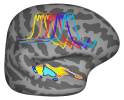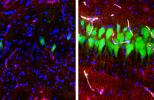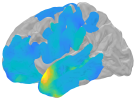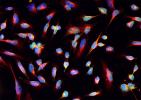In the eternal search for understanding what makes us human, scientists found that our brains are more sensitive to pitch, the harmonic sounds we hear when listening to music, than our evolutionary relative the macaque monkey.
Press Releases


A large study of more than 21,000 people finds that training emergency medical services (EMS) agencies to implement prehospital guidelines for traumatic brain injury (TBI) may help improve survival in patients with severe head trauma.

Scientists used brain signals recorded from epilepsy patients to program a computer to mimic natural speech—an advancement that could one day have a profound effect on the ability of certain patients to communicate.

Researchers have developed a high-tech support system that can keep a large mammalian brain from rapidly decomposing in the hours after death, enabling study of certain molecular and cellular functions.

In a study of healthy volunteers, National Institutes of Health researchers found that our brains may solidify the memories of new skills we just practiced a few seconds earlier by taking a short rest. The results highlight the critically important role rest may play in learning.

The anti-cancer drug pembrolizumab has shown promise in slowing or stopping the progression of progressive multifocal leukoencephalopathy (PML), a typically fatal infection of the brain caused by the JC virus (JCV).

NIH study finds new cell composition may lead to less effective future response

NIH study suggests tiny electrical brain waves may be a hallmark of successful memory retrieval


